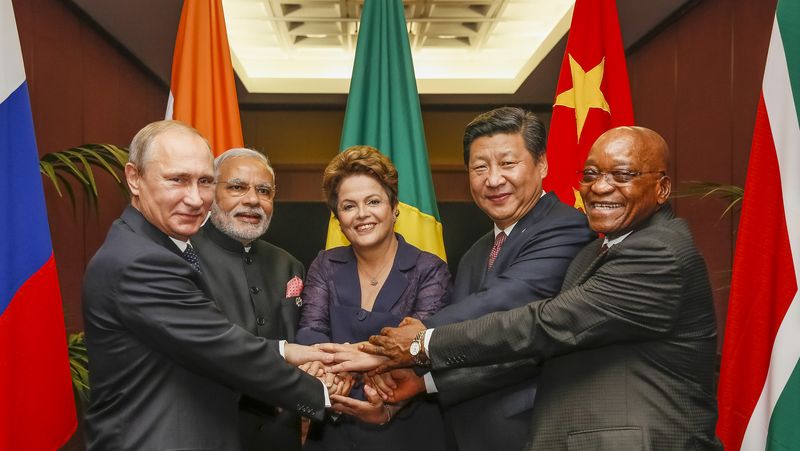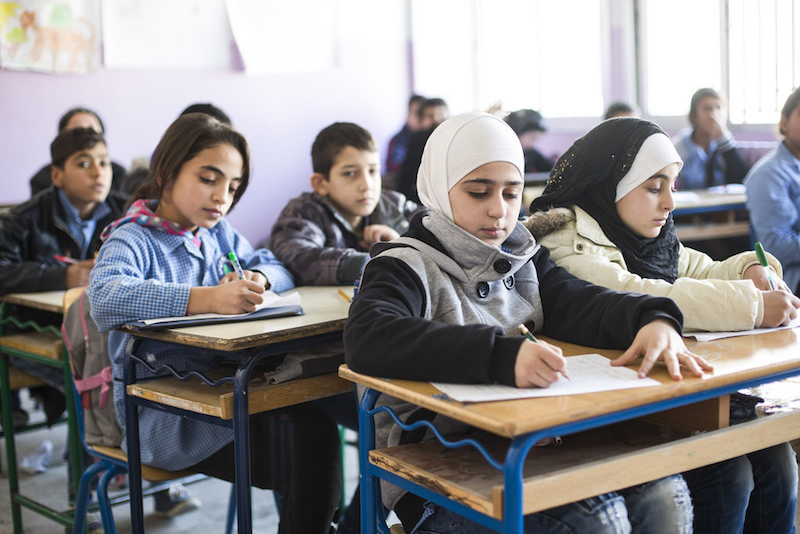Coined in 2001 by then-Chairman of Goldman Sachs Asset Management Jim O’Neill, the term “BRIC” referred to the emerging economic powerhouses of Brazil, Russia, India and China. By the time South Africa was invited to the group in 2010, adding an “S” to the acronym, the grouping was a household name in international relations. The five countries, known for large, fast-growing economies and significant influence on global affairs, represent for many developing countries an alternative to the perceived hegemony of the West in international affairs.
Stewart Patrick, Senior Fellow for the International Institutions and Global Governance program at the Council on Foreign Relations, says there’re three things one ought to know about BRICS. Firstly, they are diverse but cooperative: despite tremendous variation in their political systems and economic strength (China’s GDP is larger that that of the four other countries combined), they manage to find common ground on important principles, namely those of sovereignty and non-intervention. Second, they provide financial alternatives to the so-called Bretton Woods institutions (the World Bank and IMF), which have long been criticized by the developing world for their dominance by Western countries. These alternatives are in the form of new financial organizations, including the BRICS’ new development bank and contingency reserve arrangement. Finally, the BRICS preach inclusive multilateralism. They are central members of multilateral arrangements, including the G20 and the Nuclear Security Summit process, that offer emerging economies “a seat at the table.”
These facts point to a grouping that is still a force to be reckoned with in international affairs. Despite this, pundits the world over have argued for its growing irrelevance in recent years. Some have pointed to hints of economic slowdowns among the BRICS, while others have placed greater importance on other emerging economies; many have dismissed the grouping altogether. Analysts have pointed out the countries’ divergent interests, suggesting that they will never be able to work together as a bloc.
This view, I argue, is wrong. It stems from an important mistake made by Western observers: the predisposition to view the BRICS as a purely economic entity and, in turn, to ignore their political momentum. The BRICS, despite the slowdowns in their economic growth, remain more relevant than ever.
A common desire to reform global governance, particularly in international finance, was the issue that drove the BRICS together and gave them legitimacy in the aftermath of the global financial crisis. Their grievances are held by many developing countries: they believe existing institutions are increasingly out-dated, and that emerging economies – which represent a growing proportion of the global economy and population – should be treated as equals.
This is manifested in the new BRICS financial institutions, formally launched this summer at the grouping’s summit in Ufa, Russia. These are the New Development Bank (NDB), a US$100 billion lending platform that will finance infrastructure projects in the BRICS and other developing countries, and a US$100 billion currency pool known as the Contingency Reserve Arrangement (CRA).
For years, the BRICS countries – and many others – have called for an overhaul of the Bretton Woods institutions, where Western countries remain disproportionately represented. One need only look at the difference between the voting share in the International Monetary Fund of China, the world’s second-largest economy (3.81 percent), and that of France, whose economy is three times smaller than China’s (4.29 percent), to see this discrepancy in action. Yet despite countries agitating for changes, current reform attempts are at an impasse. The IMF reform package negotiated in 2010, which would be a step forward in addressing these grievances, is stalled in the U.S. Congress. Many argue that the new BRICS institutions, coupled with growing frustration with the status quo, are a sign of things to come. As Indian politician Shashi Tharoor recently wrote, “if the BRICS are not allowed to help lead within the existing global system, they will inevitably create their own.”
Beyond financial institutions, the BRICS have often presented a united front against a “perceived preponderance of Western power in an increasingly multipolar world.” Despite the economic slowdowns and even economic hardship touted by observers as harbingers of their irrelevance, there is no doubting that the five countries represent some of the most powerful countries outside of the developed core. Acknowledging this, the countries have often worked together to rectify what they see as inherent inequalities in the multipolar system.
When the Organization of Economic Cooperation and Development (OECD) asked Brazil to become a member a few years ago, Brazil said it would join only if Russia, India and China were allowed in as well. During NATO’s 2011 military intervention in Libya – which Russia, China, Brazil and India abstained on voting on in the Security Council – the BRICS voiced strong criticisms when the campaign started to hint at regime change. In their view, “the West had not only exploited R2P as a pretext to oust a foreign leader, but had taken advantage of the BRICS’ good faith.”
The BRICS showed similar resistance during Western efforts to censure Russia for intervening in Ukraine. When countries called for barring Putin from last year’s G20 summit in Brisbane, the BRICS released a blistering statement in response. “The custodianship of the G20 belongs to all Member States equally,” the statement “noted with concern”, “and no one Member State can unilaterally determine its nature and character.” After the global financial crisis, the G20 replaced the Group of 7 as the most important forum for international economic participation. This was exactly because emerging economies, of which the BRICS are the most prominent example, could no longer be discounted.
It is naïve to argue that the BRICS’ economic troubles herald a decline in the grouping’s influence or relevance in international affairs. Admittedly, the BRICS are not perfect: Russia’s annexation of Crimea has strained the group’s commitment to non-intervention, and their failure to address the crisis in Syria lends less credence to their “absolute sovereignty” approach. But they are a symbol of the world’s impatience with the status quo: sooner or later, the West – be it Washington, London or Brussels – will have to address these shortcomings in global governance. As Daniel Chardell states, “the BRICS as a grouping do not represent a threat to the established world order. But that doesn’t mean that their grievances aren’t worth the time of policymakers in Washington.”




